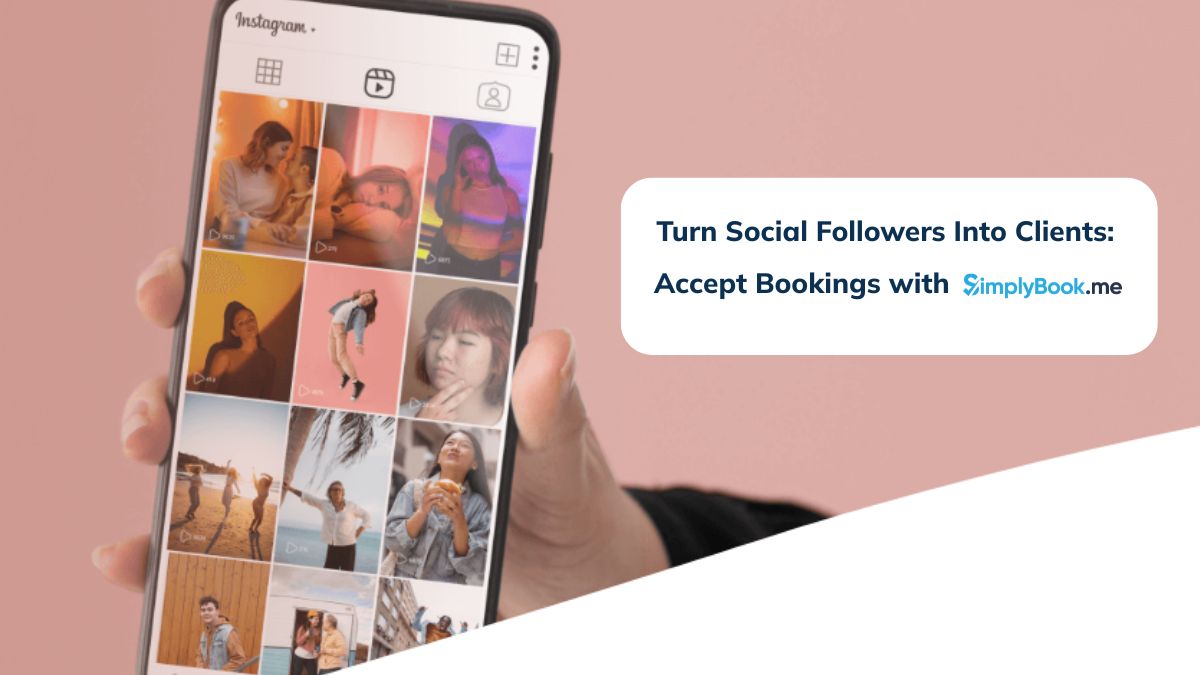Small Business Ideas To Start In January 2022

This post is also available in:
![]()
![]()
![]()
![]()
If you’re thinking of starting a new business, finally setting up that side hustle or diversifying a current business for increased profitability, January might be just the time to do it. Maybe you’re looking to improve your profitability or even start a side hustle. Today we’ll look at some small business ideas to start in January, when perhaps you are a little quieter.
The last two years have been a little rough on many businesses globally. However, that’s no reason to give up on your entrepreneurial dreams. Every company or enterprise ever conceived goes through rough patches and slow periods, but there’s always room to diversify and change direction when the need arises.
Why Implement a Small Business Idea?
Whether you have a strong entrepreneurial spirit, you want to embrace your passions, or improve your financial situation, starting a business is a good idea. Your business could be a passive one, a side hustle, or the beginning of a whole new direction in life.
Acting on small business ideas is also a way to protect yourself from the fluctuations in the economy. No one can be sure that their employment will always be there for them. 2020/21 has shown that while some industries can deal very effectively with reduced contact and isolation, others cannot. Having some financial protection in an active side hustle can mean the difference between survival and disaster if the worst should happen.
Small business ideas can start small and stay that way. A little background enterprise that supplements your income and expands your business reach in new directions. Alternatively, small business ideas can become big business ideas that surpass your original or allow you to quit your day job for something you love more.
Small Business Ideas to Start in the New Year
The New Year is a time to cement new resolutions, start new things, and it’s very often a quiet period in some sectors. You might need to diversify your existing business to earn extra income when people don’t use your principal provisions. On the other hand, you might want to take a break from your usual to use your other skills and prevent burnout.
So here are some small business ideas that might appeal to you and could be the next step in your future.
Teaching, Coaching, Advising and Consulting
While they often come in different wrappers, they are all about sharing what you know with others. If you have years of expertise in something and can share that information, do it.
This is potentially a straightforward way to maximise your skills and increase your income. There are so many platforms available that enable you to create online video courses, use video classrooms, and you can even write ebooks. Creating video courses makes the most sense for the best use of your time and making a long-term investment in your future income. Once you have completed your class, you can essentially sit back and allow it to generate revenue. But don’t forget to market your new endeavour.
If you’re in the marketing business, you might want to look at sharing that information on platforms like LinkedIn, Udemy or others. Another example could be a chef or baker sharing cookery courses while business is quiet. You know that January is slow because people are more frugal with their money after Christmas and possibly watching their diet after an over-indulgent holiday season.
Instead of creating online or in-print courses, you might want to set yourself up as an advisor or consultant with your wealth of knowledge and experience. This will require you to set aside specific times and availability both now and into the future so that people can contact you directly, ask questions, and have your undivided attention. You can schedule your availability with the right tools to ensure it doesn’t infringe on existing commitments.
Turn a Passion or a Hobby into Profit
You needn’t start a new business with anything to do with your existing one or your day job. If you have a hobby or passion at which you excel, you can potentially turn it into a profitable side hustle. You might have unused skills in your day job that are desperate for use and in high demand.
Some examples could be sewing skills for custom tailoring and alterations. Maybe you make things you can sell. The key here is not to get hung up on profit in the initial phases and to ensure you price your services or products appropriately.
If you already do or make something for the sheer enjoyment of doing it, you would do it with or without making a profit. Pricing to break even plus 20% can make your hobby a profit. Don’t try to add your working hours unless you create custom items because you may end up pricing yourself out of sales. However, once you have established your skills and qualifications, you can price higher.
Offering Your Tech Skills
While the number of people with a basic understanding of electronic and computer tech is increasing steadily, there are still significantly more people without those skills.
Tech skills are valuable to everyone these days. You can barely stay in touch with family without an email address, Telegram account and video calling software. And it’s almost impossible to run a business efficiently without a few tech skills at hand.
If you have the skills available to help the people who need it, perhaps that could be your new small business.
Most small businesses do not have an in-house IT and tech support budget. However, they still need help sometimes. Whether software or hardware, you can find people who need those skills, whatever your particular skill set.
Some examples could be:
- Hardware purchases and PC building for specific requirements.
- Network architecture for a growing business
- AdHoc & Freelance tech support
- Software development (e.g., manufacturing software development)
- App development
- Website building.
Any (or all) of these are useful to most small businesses at some point. If you find enough of these businesses, it becomes a full-time contract and a considerable opportunity for building small business ideas into bigger ones.
Developing a Complementary Service
If you have an existing business, diversifying into new services could help you attract more clients and customers to your company. This is particularly true of retail and product-based companies. However, it can work both ways.
For example, if you have a retail clothing business, it could be valuable to have an alteration service. Even more so if you can do it yourself. People don’t come in the exact shapes as most places and brands make clothes. Most of us make do with what we can get using a belt to cinch in a waistband or buying a size bigger to accommodate a broad chest or generous bust. However, wouldn’t it be better if we knew we could make alterations, so our clothes fit properly? This is even more important in good quality and more costly clothing.
Another example is selling home appliances. People are more interested in sustainability today and the “right to repair” rather than replace it. While most appliance manufacturers have at least a two-year warranty on their goods, most people want them to last longer (especially big-ticket items such as TVs, washing machines, and fridge-freezers). Keep your clients close by having a repair and reconditioning programme. You might need to hire specialists or have a lot of training for this.
Conversely, service businesses could leverage the quality of their service provision with retail sales of the products used in the services or for maintaining results. For example, personal trainers could sell the tools needed to carry out their clients’ regimes. A kitchen designer could sell the tools and provisions needed to maintain the condition of wooden cabinets, granite worktops, and ceramic hobs.
Writing – It’s not just about blogging
Writing can come in many forms if you have unused writing skills (and you have the time to dedicate). Sure, you can blog, and Adam Enfroy has some valuable tips for starting a profitable blog business. However, blogging isn’t the only reason people might pay you to write.
There are many translation jobs around for the multi-lingual. If you are fluent in more than one language, translation to your native tongue can be very profitable.
Another writing gig can be transcription, since there is always demand for such services (e.g., financial transcription services by Speakwrite). You don’t need to be creative or skilled with the written word, but typing speed is your friend. Perhaps you are an absolute whiz at writing resumes that always get an interview. These skills are in heavy demand with more companies using automated resume selection software.
It might not be writing in the traditional sense, but scripting for a podcast could be just the way your writing skills work. You could write for your own podcast or help write scripts for ads or youtube videos. Writing needn’t be for people to read. It might be spoken.
And then, if you have a lot of time and considerable skills, you could always try ghostwriting. Of course, ghostwriters don’t get the credit for their writing, but they could get paid for a best-selling series with enough skill.
Which Small Business Idea is Best for You?
You could be tempted into a small business idea that you love but has no demand. Alternatively, you might also be drawn into starting a business with high demand, but your local market is saturated.
It’s a delicate balancing act, and if you have already started a business, you know how to research your market. However, if you’re starting your first small business, you will need to consider some critical things.
- Market Saturation vs Market Demand
- Your abilities and skills
- Emerging Trends
- Time Availability
What Does Being Your own Boss Require?
The idea of being your own boss and starting a business is enticing. It’s easy to think that one day your side hustle might make you millions or that you’ll quit your daily grind to do something you love. There are no guarantees that either of those things will ever happen. However, if you can commit to the following requirements of starting a new business, you might have a successful small business with the potential to grow.
- Decide which business idea is best for YOU – don’t be swayed by others against your research and judgement.
- Evaluate the market
- Create a business plan
- Create a business name and start building your brand identity
- Secure a bookkeeper and choose an appropriate small business accounting software – don’t ever let someone else have complete control and understanding of your accounts. Make sure you understand, even if you need help filing your income and tax reports.
- Open a business bank account
- Start marketing your business.
Remember that running your own business means taking responsibility for all aspects. You have to wear a lot of hats to ensure smooth running.
Before You Go…
Yes, before you go and set in motion those small business ideas that you’ve been considering, it’s worth thinking about some business trends that are predicted to grow significantly in 2022.
All things sustainability.
Upcycling, recycling, sustainable goods and products, biodegradability, and so much more. If you can find a spot in this niche for your new small business ideas, you will find clients and customers ready to try and change the world with you.
Pet Services.
Many people bought or adopted new pets in 2020/21 to ward off loneliness and escape the isolation of lockdowns. However, with many companies demanding the return of their staff to the office environment, pet care will become a booming business in the next year or more. People will need everything from dog walking and pet sitting to grooming and training.
Digital Event Coordination.
Forget all the hassle and expense of large-scale conferences and events. Digital event coordination is all about making things as accessible to as many people as possible. There is no need for capacity limits in the digital realm. While we will still have real-world events, digital ones will leverage the convenience and accessibility of conference attendance with ease and reduced technology costs. Digital event coordinators will be insignificant demand.
Fitness.
We’ve heard the stories of those who set up a home and lost many kilos while in lockdown. However, we’ve heard less about those who managed to get a bit lazy, stopped going out to exercise, and ordered a lot of fast food. It’s these people who will see the fitness business start to boom again. It will be the trainers and the gyms that will reap the benefits. People desperately want to get back to the gym, but they will combine it with proper instruction for the best results.
Freelance Support.
Did you know that as much as 32% of US companies outsource their customer support services? That number will only grow, but it isn’t just the large corporations doing it. Small and medium-sized businesses are seeing the benefits too. It’s not just customer support either. Smaller companies understand the need for additional IT, accounting, and HR support but don’t need full-time staff in those areas. This is where freelance support contractors can make their businesses shine.
So what small business ideas have you had kicking around ready for the right opportunity?


Comments
2 commentsMichael Fallquist
These are all good tips for business, especially regarding blogging. You’d be amazed by how much a steady stream of content helps businesses in the long term, not only when building their sites but appealing to their audiences.
Saleh Taha
I must say thanks for your great effort. What a great article I’ve just read, especially the idea which is offering your tech skills, it’s really straight to the point.